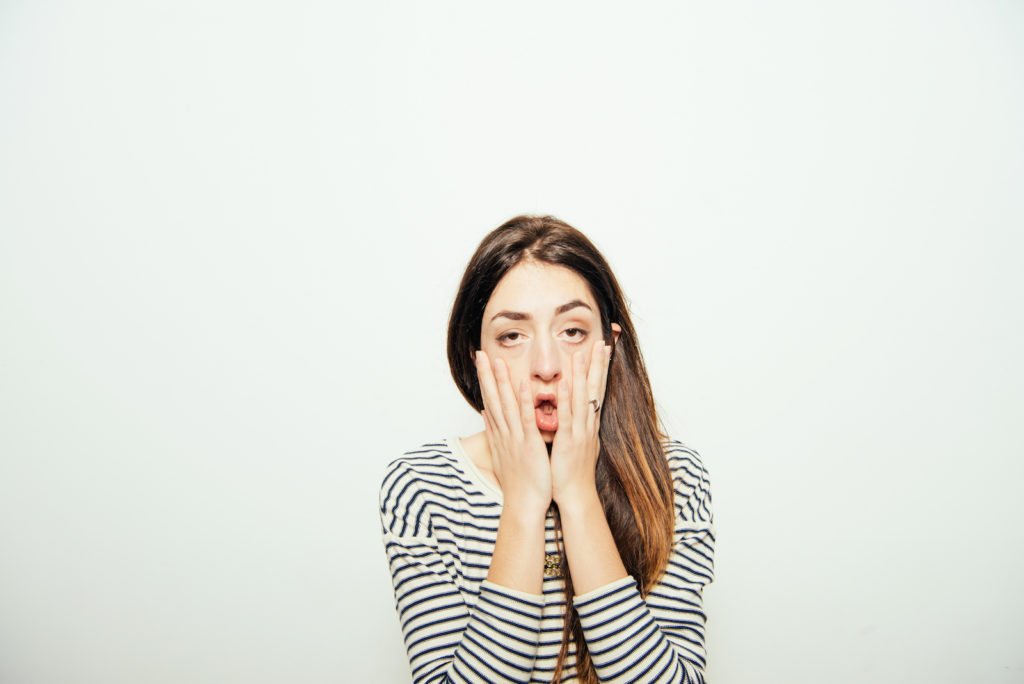By Emma Stessman
Yes, that “you look tired” comment is totally obnoxious. Unfortunately, it might actually be true.
According to experts, a poor night’s rest can definitely show up on your face the next morning, even if you don’t generally consider sleep as a part of your beauty routine (like a mask or facial oil).
“We find that the importance of ‘beauty sleep’ is continually underestimated,” says Jeremy Muijs, co-founder of natural beauty brand Grown Alchemist. “It truly is an essential foundation for a radiant, healthy and youthful complexion.”
RELATED: Meet the Powerful New Ingredient That’s Good for Your Skin and the Planet
So before before you drop a pretty penny on anti-aging and renewing products to get your glow, it could help to consider what those missed ZZZs may be doing to your skin and how you can boost your beauty routine, starting with your REM cycle.
Seriously, this skin-care trick is so easy, you can do it in your sleep.
What Lack of Sleep Could Be Doing to Your Skin
According to W. Christopher Winter, M.D., a sleep specialist and author of The Sleep Solution the effects of sleep deprivation on your skin are two-fold.
Short term, just one or two sleepless nights can lead to unpleasant issues like dark circles and under-eye bags. “Inadequate sleep causes the tiny blood vessels under the eye to dilate, giving the area a darker and more puffy appearance,” Dr. Winter explains. As you’ve probably learned by now, you can banish them fairly quickly with the help of a good night’s rest and a trusty under-eye cream.
Over the long term, however, continuous sleep deprivation could lead to more permanent effects. “Years of inadequate sleep can create a lack of deep sleep which, in turn, diminishes the amount of growth hormone an individual produces,” Dr. Winter says. “Since growth hormone is essential for helping to restore the body and keep it young looking… the lack of sleep can age you prematurely.” One study found that consistently poor sleepers had increased signs of aging, including fine lines, uneven skin tone, and reduced elasticity.
RELATED: These Are the Four Major Factors That Lead to Skin Damage
On top of that, Dr. Winter says, you generally get a little dehydrated at night, no matter how long you sleep. With inadequate sleep, it’s a double whammy; there’s evidence to show that lack of sleep can actually lead to dehydration. Dehydrated skin is a big no-no when it comes to skincare, and Muijs says it goes a step further. “[This] dehydration alongside a correlated drop in pH levels creates an overall skin imbalance,” he says. “This can lead to an unnecessary inflammatory response with the hallmarks of skin stressors including redness, puffiness, and even acne.”

How to Hack Your Beauty Routine in Your Sleep
So you get the gist—poor sleep is pretty terrible for your skin.
The good news is, all you have to do is get to bed. “Get enough sleep,” Dr. Winter says. “Don’t shortchange yourself.” Just like the rest of your body, your skin’s working hard during the day and it knows how to reboot itself if you give adequate time.
“During the day, our skin acts as a barrier…against environmental toxins, pollutants, and general debris,” Muijs says. “As a result, it is under near-constant attack.” However, during the sleep cycle, he explains, it enters into “recovery mode” thanks to the well-known sleep hormone, melatonin. “This hormonal release not only coaxes the body into a deep sleep, but it also counteracts the daily damage caused by oxidation and exposure to toxins whilst working to repair cellular DNA damage that occurs during our waking hours,” he says. “This is why a practice of proper sleep hygiene is essential to anyone looking to counteract the visible signs of aging.”
RELATED: Why You Really Need to Get More Sleep
For the nights you want a little boost to really reap the benefits of your eight hours, here are a few strategies to try.
(Photos: Shutterstock)